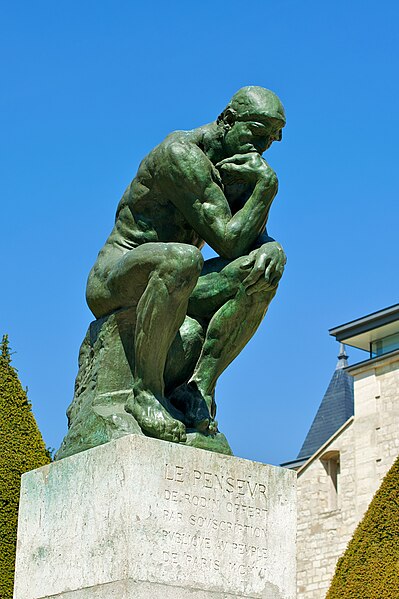A couple of posts over on Andrew Sullivan's blog got me thinking about education recently. The first was titled "How Much Math Do We Really Need?" It was basically a link to an essay by a math teacher who thinks we teach too much math and should cut back. A follow up post on Sullivan's blog highlighted a few arguments against this line of thinking.
As a lover of math, I have a hard time agreeing with cutting back on math education; but I want to make a broader argument about education. If we want to make sure we provide our children the best education, we need to start by asking what that means. When we send our children off to school, what do we want them to come home being better at? What do we want them to accomplish? I believe it has two foundations that are absolutely essential and all else must stem from these. We need to teach kids how to reason and how to communicate.
If people learn how to reason, how to critically think, then there is nothing they cannot learn. There are lots of facts out there. Of course they are important, but they are meaningless without the ability to understand what they mean. It's easy to teach someone the names of every American President and the years they held office. It's harder to understand why FDR was a transformative President or how Executive authority is different now than it was 100 years ago. It's easy to know that Martin Luther's writing of his The Ninety-Five Theses in 1517 was one of the flash points in triggering the Protestant Reformation. It's much more difficult to understand the long-simmering tensions that led up to it and how it opened the door to 30,000+ branches of Christianity.
In an ideal world, kids would learn lots of facts and how to connect them, how to understand them. But if they have the ability to analyze, to deduct, to piece together the pieces of a problem, then the facts are a secondary concern. The thinker can work those out. This doesn't mean everyone can be an Albert Einstein developing ground-breaking scientific theories in his or her spare time. But we can teach people how to ask questions. Why? How? What does this mean? Is this someone's opinion or is there a factual basis for this assertion?
The second thing that we must teach our children is how to communicate. We've taught them how to think and now we need to teach them how to share what their reasoning has led them to. This is not just writing, either, though that might be the most important. Kids should learn how to speak. It doesn't stop there. Ideas can be communicated visually through means such as painting or movies. Why not give children an opportunity to develop skills in these areas. Communication is just as vital as reasoning because the most brilliant thinker in the world is worthless if she can't successfully communicate those ideas to other people.
Education is hard, especially in the world we live in today where we expect people to know so much. I could write a lot about education theory and what I think we need to do to advance it. In fact I'm sure I'll write more about it. But whatever we do or how we do it, I think we need to have a solid foundation. Kids need to learn how to think critically and how to communicate. All else flows from these two pillars.
Thursday, October 31, 2013
Subscribe to:
Comments (Atom)




